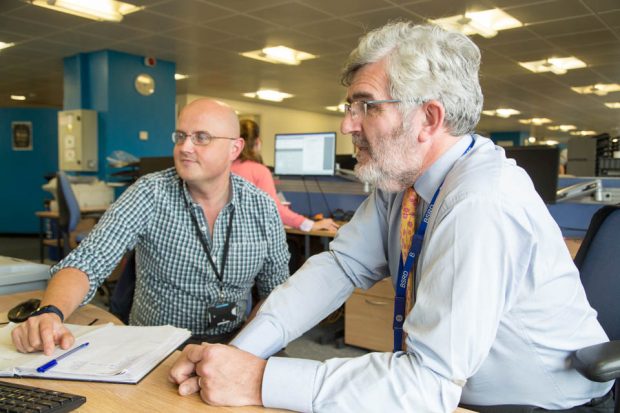Parkinson’s disease is a progressive condition that may affect someone’s ability to drive safely. Dr Wyn Parry, DVLA’s Senior Medical Adviser, tells us more about driving with this condition.

I joined DVLA as Senior Medical Adviser after thirty years in the NHS. It’s my job to advise on how certain medical conditions can affect someone’s ability to drive. After blogging last year about driving with diabetes, this time I’d like to focus on driving with Parkinson’s disease.
Parkinson’s disease affects the nervous system and may affect the muscles, causing movement problems. In some circumstances, it can even affect the functions of the brain.
Driving a vehicle safely
Being able to drive a vehicle requires high levels of skill and ability. A driver either needs to be unaffected by a medical condition, or have a medical condition that is controlled so that symptoms are highly unlikely to cause any problems.
Sadly, Parkinson’s is a progressive condition and deterioration is inevitable. It’ll affect many activities, including driving. This is why it is so important that all drivers who are diagnosed with Parkinson’s must tell DVLA. The rate of deterioration varies, but recognising that it will happen is important. It allows the patient and their family time to make plans for any lifestyle changes that may be necessary.
Knowing you will eventually lose the ability to drive is never easy to accept. But it may be more bearable if the person has time to adjust and plan alternative ways of travel. For example: public transport, taxis, or lifts from friends and relatives.
For professional drivers, who must demonstrate a greater level of fitness to drive, it may involve reviewing work options for the future.
How DVLA makes a decision about drivers with Parkinson’s

Once DVLA is told about a driver with Parkinson’s we’ll ask the driver for information about their condition. We’ll also talk to the healthcare professionals involved in their diagnosis and treatment - like their GP, consultant or specialist nurse.
Information we usually ask for includes details about how long the individual has had Parkinson’s, the level of deterioration and any changes in treatment. All this information is crucial for us to be able to make an informed decision on whether they can continue to drive safely.
Where possible we always try to offer a driving licence to a driver with a medical condition, but only if it’s safe to do so. Our priority is to always maintain road safety for the driver and other road users.
For many drivers with medical conditions like Parkinson’s, we might offer a short-term driving licence. This could be for one or three years. We tend to start going down this route when a driver’s condition begins to deteriorate – a longer term licence may be offered earlier on, with subsequent licence periods getting shorter over time.
For more information about driving with Parkinson’s
You can visit Parkinson’s UK’s website.
Follow DVLA on Twitter, Facebook and LinkedIn and subscribe to our Digital Services Blog.
2 comments
Comment by Ian Roden posted on
How about an assessment drive to test the ability of the sufferer with the IAM or a driving examiner
This would give confidence to both DVLA and the driver.
Automatic cars could be less of a problem as it takes away one of the driving processes.
There seems to be nowhere you can tell the medical section what type of car you drive, or if you have passed IAM requirements
Comment by DVLA digital comms team posted on
In some instances, where appropriate for the driver in question and their declared medical condition, a driving assessment is undertaken to determine the effect on safe driving. We are continuously reviewing our medical processes and will take your suggestions into consideration, thank you for your input.